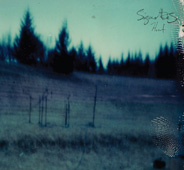Faith of Our Fathers

This is an entry that I wrote a little over a month ago, then put under my pillow, wondering if it would be worthwhile to post it. It is somewhat revealing, you might say, but I think it might be all the more worthwhile for that.
I turned the radio on in the bathroom today, in a move of errant whimsy.
Occasionally, I will listen to preaching on the local station that airs that sort of thing. They also deign to play Christian call-in radio shows as well, which gives me pause. How did those begin? Presumably, most people call in because they've heard the host giving helpful advice to other callers. But who was the first caller who thought he'd take a shot and dial up Dr. First-Name-Only (there's a red flag) and see what he had to say? There are very few logical Books of Genesis, so to speak, for call-in radio shows, and I daresay most of the explanations are dubious.
However, this time, there was a pastor on who was preaching about something-or-other. Having heard many of these fellows, I recognized his tone and the cadence of his language, and it struck me as encouraging a doctrine of fear. Not Fear and Trembling, mind you, just fear. Fear of the current culture (or, arguably, the lack thereof) and fear of the degenerative social norms seemed to be the flavors of the day. I turned off the radio with a mixture of disgust and humorous pity, and a terrible thought came to my mind which had been brewing for days.
It began, or at least surfaced, when my friend and I went to see Transformers 3, the title of which tells you most of what you need to know. We entered the theatre on July 3rd, and exited on July 4th. The three hours in between were packed with a sugary conflux of explosions, larger-than-life robots, a busty heroine, miniature soliloquies on freedom and justice, and more American flags than can be counted. I went home, slept, and the next morning, read the Declaration of Independence, the Mayflower Compact, an essay by Cotton Mather, and an excerpt by Christopher Columbus. All this transpired as, a few miles away, downtown was preparing for a celebration in which the 1812 Overture would be played in time with a deafening fireworks display. Now, I enjoy fireworks, but compared to a reading of the Declaration of Independence - which would attract far fewer patriots to a public park - explosions for fun seem rather lowbrow. In this decidedly snobby frame of mind, it occurred to me that the founding fathers, so often lauded by people who have never taken the time to read their work, might not have been people of simple faith.
Simple and Complex, I thought. Some people have Simple Faith, and some have Complex Faith. People who are high logical, as the founding fathers of necessity certainly were, might find themselves wrestling with angels more, as it were. The thinking man, by definition, has more questions. Obviously, I knew which side my bread was buttered on. I was highly logical, I thought. My faith was Complex. This is, by the way, not a pretty story.
Two things came to mind that countered this elitist cognition. The first was the remonstrance of Paul to the Roman church. "Who are you to judge some other master's servant?" he chides them. "To his own master he stands or falls; and he will stand, for God is able to make him stand."
Perhaps we should not call these flavors of faith simple and complex. In the best sense, they are like bridge designs, I suppose. Over the same chasm can stretch both the Roman aqueduct, stalwart and grizzled as some old sea dog, and the spindly steel harp strings of the suspension bridge. When I hear those words - simple and complex - roll off my tongue though, I cannot help but recall the poignance of the second thing which came to mind.
Jesus drew a child out of the crowd, as if picking a daisy, and juxtaposed him against the righteous swagger and belch of the disciples. Unless you become like this, you won't be a part. The subjects of the King are all like children. He didn't elaborate, but it is striking how simple a child's faith is. There are hard questions, certainly, but the child's faith is never convoluted through a series of pathetically dusty dogmas and intellectual backflips.
As my pastor put it, following Jesus is simple, but not easy.









